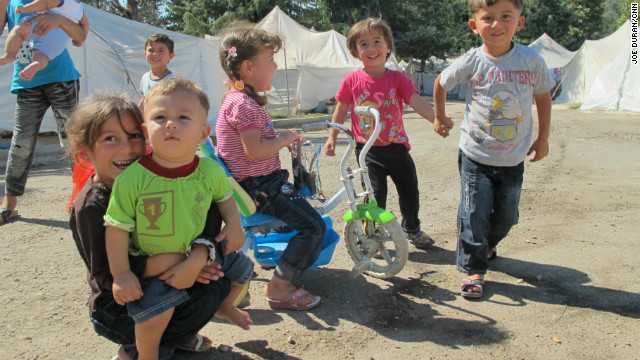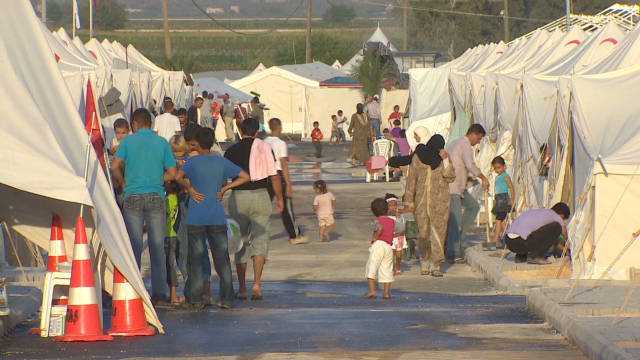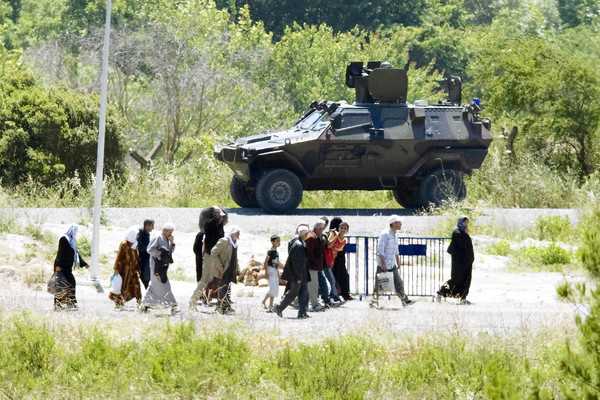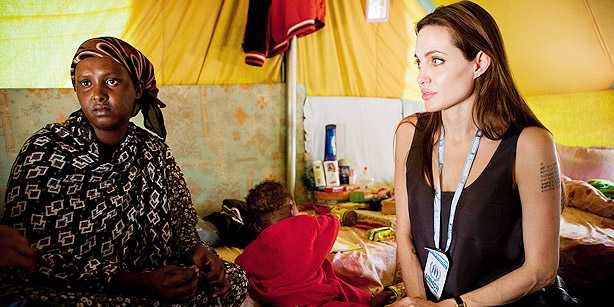By Ivan Watson and Gul Tuysuz, CNN
October 3, 2012 — Updated 1014 GMT (1814 HKT)
The United Nations refugee agency said that the number of Syrian refugees in neighboring countries has more than tripled since June to over 300,000 The United Nations refugee agency said that the number of Syrian refugees in neighboring countries has more than tripled since June to over 300,000

STORY HIGHLIGHTS
Turkish police are making Syrian renters leave homes in Turkey, refugees say
Syrians say they are being unfairly pushed to refugee camps
More than 93,000 refugees currently live in a network of camps spread along the border
Antakya, Turkey (CNN) — Turkish police are going house to house in this border province issuing an ultimatum, Syrian refugees say: Either move into a refugee camp or go back to Syria.
More than a half dozen Syrian refugees living in rented homes in Antakya and the nearby town of Yayladagi offered similar descriptions to CNN of the stark choice recently imposed by local Turkish authorities.
“I told one cop, ‘What if I don’t leave?’” said a male Syrian refugee who asked not to be named to protect him from Turkish and Syrian government reprisals. “He said, ‘We will take you to the police station and force you to evacuate’” your home.
“The first time the police came, they asked for my passport, took a look at it, and then one of them said, ‘You have three months, you can stay here for three months,’” said another Syrian man who asked to be named as Abu Ahmed to protect his family members still living in Syria.
Syria’s new normal
Syrian refugees struggle to find haven
The Syrian refugee crisis
“Then 20 days later they came back,” he said. “I wasn’t home but my wife was, and they made her sign a paper to evacuate ourselves from this house within four days.”
At least a half dozen other Syrian refugees have told similar stories of Turkish police ordering them to abandon homes that they have rented here in Turkey.
Turkish officials at the local and national level of government confirmed that authorities were pushing Syrian refugees toward the camps.
“We are trying to guide and suggest people who arrived legally or ‘illegally’ to go either into the camps, if they have arrived illegally, or suggesting the others to move to nearby or different cities,” said a Turkish official, who asked not to be named because he was not authorized to be interviewed by the press.
“The local authorities … they have to do such things in the interest of regularizing the presence,” he added.
Officially, more than 93,000 refugees currently live in a network of camps spread along Turkey’s long border with Syria.
But Turkish diplomats estimate there are another 40,000 to 50,000 unofficial Syrian refugees who have chosen to live in Turkey outside of the camps. On Tuesday the United Nations refugee agency said that the number of Syrian refugees in neighboring countries has more than tripled since June to over 300,000.
via Syrian refugees in Turkey: Police are forcing us from homes – CNN.com.




